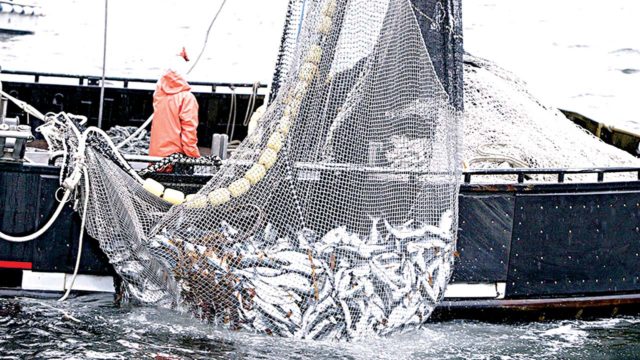
Findings by Shipping Position Daily have revealed that Nigeria is losing billions of naira annually to illegal fishing and piracy, significantly undermining the country’s N2.5 trillion blue economy potential.
Checks by our correspondent revealed that only about 150 fishing trawlers remain operational in Nigeria, with many struggling to stay afloat amid soaring operational costs. This is according to Mrs. Bennedette Okonkwo, President of the Nigerian Trawler Owners Association (NITOA).
International and local stakeholders have also urged the Federal Government to confront these security challenges, alongside interstate disputes and transnational crimes such as arms and narcotics smuggling, to unlock the vast economic opportunities presented by Nigeria’s maritime sector.
Okonkwo warned that without urgent intervention, the fishing trawler industry could collapse under financial pressure, increasing Nigeria’s reliance on imported seafood.
Okonkwo noted that the high cost of operations is one of the primary obstacles hindering trawler owners from functioning efficiently. “Our vessels operate 24/7 on diesel, and there is no alternate source of energy,” she lamented, underscoring the burden of relying heavily on Automotive Gas Oil (AGO) for powering both engines and onboard systems.
At a recent maritime conference in Lagos, discussions centered on the necessity for Nigeria, as a maritime state with extensive marine territory, to effectively harness its oceanic resources through improved maritime security and sustainability.
The Minister of Marine and Blue Economy, Adegboyega Oyetola, emphasized the importance of addressing security challenges, particularly in light of technological advancements and alternative fuels aimed at reducing greenhouse gas emissions in shipping. “To ensure both the safety of our shipping activities and the efficiency of maritime operations, the government must invest in upgrading facilities and building capacity,” Oyetola stated, asserting that these investments would enable Nigeria to remain competitive in the global seaborne trade arena.
Prof. Larry Awosika, Chairman of the Commission on the Limits of the Continental Shelf (CLCS), warned that illegal fishing, security lapses, and environmental degradation could severely undermine Nigeria’s marine-based industries, with repercussions for both national and global economies. He underscored the need to integrate economic growth with environmental sustainability, asserting that maritime security is a key enabler of the blue economy, which encompasses fishing, resource extraction, marine transportation, and tourism.
In addition to addressing immediate challenges, Okonkwo urged the government to support the sector with policies like fuel subsidies to alleviate the high costs faced by operators. “Government support could come in the form of fuel subsidies, not just price reduction, but actual subsidies to help us operate,” she asserted, stressing the urgency of intervention to prevent more vessels from remaining docked and further reducing local fish production capacity.
She also highlighted that most of the country’s fishing trawlers are primarily licensed for shrimping, limiting Nigeria’s ability to meet its fish consumption needs through trawling alone. Okonkwo called for robust support for aquaculture to fill the gap left by the struggling trawler industry. “Without robust support for aquaculture, Nigeria will continue to rely heavily on imported seafood,” she stated.
On his part, the Director-General of the Nigerian Maritime Administration and Safety Agency (NIMASA), Dr. Dayo Mobereola, acknowledged the evolving challenges facing the maritime industry, including rapid technological advancements, environmental concerns, sustainability issues, and the demands of global trade. To navigate these challenges, Mobereola advocated for investments in cutting-edge safety technologies, training programs, and capacity-building initiatives within the sector.















